#Quite interesting
Explore tagged Tumblr posts
Text

78 notes
·
View notes
Text
Hidden in the depths of my files, here's a Paul interview on The Monocled Mutineer, from LM magazine, February 1987. Sadly, I can't remember where I found these shots.
(That was meant to be posted yesterday, but I completely forgot it🫣)




#Paul McGann#my love#interview#quite interesting#as all Paul interviews#his face in the main photo is like “let's get on with it and quickly”#the monocled mutineer#LM magazine#1987#A belated McGann Monday post
23 notes
·
View notes
Text

jpg played with like a doll courtesy of @dovand
72 notes
·
View notes
Text

Watching an old episode of #QI AND I FOUND MARY BONNET 😂😂
#our flag means death#izzy hands#lucius spriggs#ofmd#con oneill#nathan foad#blackbeard#stede bonnet#edward teach#mary bonnet#Claudia O'Doherty#QI#quite interesting#stephen fry#taika waititi#rhys darby#sprizzy
37 notes
·
View notes
Note
This was the art I mentioned so…. Blood bender from avatar blood bending an elf ear. Idk, you don’t gotta post it. LOVE YOU💜💜💜

OH DAMN-
#quite interesting#my dear god!#I like the way you drew the ear tho#artshit#silly-lesb21#my daughter 💙💙💙💙💙💙💙💙💙💙#tw: blood#tw: gore
7 notes
·
View notes
Text
alan davies gets paid to be a silly billy little guy on qi
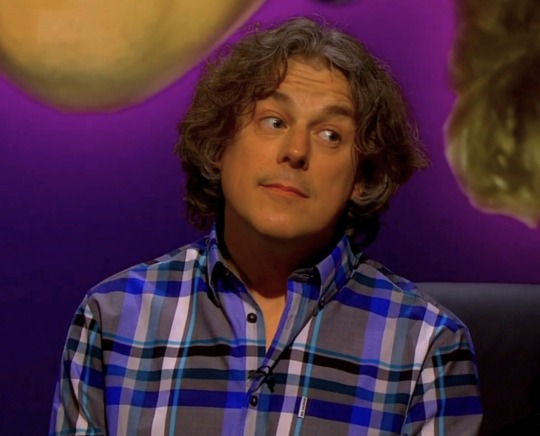
#alan davies#qi#quite interesting#panel show#panel shows#british panel shows#britcom#british comedy#british comedians#sandi toksvig#stephen fry#hes just silly all the time i love himb#its what he deserves#my sweet sweet boy
79 notes
·
View notes
Text
QI P Series Episode Pictures
youtube
youtube
Full Episode
Thanks, Marina
(submitted by @marina-fielding)
#Noel Fielding#Joe Lycett#Alan Davies#Hannah Gadsby#Sandi Toksvig#QI#Quite Interesting#submission#Accepted#Thank You
14 notes
·
View notes
Text
possibly the most important QI bonus video ever
60 notes
·
View notes
Text
Mostly Disjointed Ramblings About Game Shows, and Why Making Good Game Shows is Easier Now Than They Have Ever Been (mostly as a letter to myself)
When it comes to producing game shows (at least as far as they go in the USA), the "here's how you play the game" is often one of the furthest down the depth chart on "reasons why this should be A Thing in commercial television." Budget, targets, media planning, strategies, and contingencies are often what will get a commissioning executive's attention. A lot of time here lately they are interested in a known quantity of some sort being attached to it (being successful in another market, a well-known brand or celebrity on board with it, etc). That was meant neither as a complaint nor a complement, simply the state of play as currently on the field.
That doesn't mean your game shouldn't have some thought into it, just that media buyers are looking for a lot of other things in addition to how unique or compelling your game idea is. Ideas are everywhere, ability and the demonstrations thereof are a little harder to come by. Just know that your audience are going to be the ones interested in the game, one that is just as fun to watch others play as it is to play along at home. The point is to cut out the middleman and play to the people who will be interested in what you have to offer, not somebody's conception of what will interest the right number of the right people for what they need.
The fantastic thing about the progress of knowledge and technology (as witnessed just over the course of my lifetime, at least) is that the internet has lowered so many barriers to entry that if you have at least a microphone and some kind of computer device to connect it to, the only reason to not make something is lacking the knowledge of how to put it all together (a hurdle I'm still trying to cross myself, but flight day is coming).
Don't worry about stats or metrics or demographics-- If you make a good game, the rest will follow. Everybody complains about nothing being on or that the wrong shows keep going while the good ones get cancelled. Not everybody is a Fred McPheely Rogers, because he felt that the best way to fight bad content was to produce the content he felt the world needed. I would like to follow his lead in that regard.
I wholly cop to the idea that this smacks as more than a little self-important coming from an amateur quiz producer in thinking the world needs game shows, but I'm focusing on Mr. Rogers' actions on this: he made what he wanted, how he wanted to make it, and he made it for a number of reasons that weren't solely to do with money. He was successful with the resources he had available; whether that was because of or in spite of his limitations is a debate for another day. An unexamined faith is worthless, as are unexamined motivations. A good project is easier to complete with the right motivations behind it.
Sturgeon's Law holds that 90% of everything is shit. Who cares? Make your shit anyway.
Even if you don't roll a crit on this attempt, take notes. Even if you crit-fail, nothing is a failure so long as learning took place. Find points in the logistics where things have slowed down/broken/were absolutely non-functional. Find ways to untangle the knots you can, cut and reroute around the knots you cannot. Be honest with assessing your own work, but give yourself the same credit you would give a friend showing off their art to you. This is something you want to be proud of, work to give them something they can be proud that you would share it with them. Art is never a gamble, creating anything is never a gamble. You will have better standing to get that 10% on your next attempt, even if you draw nothing more from it than the joy and satisfaction from the act of creation and seeing something you've always wanted to see in this world.
Put a game together, write and research some questions for it, learn OBS, invite your friends to a discord call and have them play it. Put it online.
Congratulations, you have now joined a pantheon of notable people including (but not limited to) Goodson/Todman, Barry/Enright, Hatos/Hall, Heatter/Quigley, Stone/Stanley, and Dewey/Chatham/Howe.
Game shows don't have to run on the payout offered or the people hosting it. the British Broadcasting Corporation has certainly got a lot of mileage out of the idea that people will line up and wait months to win a punchbowl* if it gives them the chance to show off their knowledge of something very few people may have even heard of. Lord knows in the episodes I have seen of Mastermind, there have been artists or writers or historical events I've looked up afterwards because of the questions a contender answered on them. Which I think is an absolutely wonderful byproduct from it.
Information Please ran for years on radio on the driest game possible –a simple question bee with multipart questions sent in by listeners with a reasonable request for accuracy attached (usually asking them to get 3 parts out of 4 right)– but it was the American QI before QI was even a thing. It worked on the strength of the panel's interplay with one another as they would bust each other's chops (or moderator Clifton Faddiman's chops for some of the questions he sprung on them), sometimes it would be in a guest panelist showing off knowledge of a field nobody would have thought was in their wheelhouse. (Groucho Marx and his always being there for questions about Gilbert & Sullivan may not have been one of those times, it was something of an understanding that the man was crazy for their operas over the multiple times he guested on there, even though he never got to perform in one until the Bell Telephone Hour had him play Koko in The Mikado. Considering that the part of Katisha usually was being played by Margaret DuMont-types, it's not like Groucho wasn't dropping hints his entire career)
Got a group of friends for a podcast but can't decide on a how or why for it? Make it a panel game. There are many ways to gamify a conversation, games that provide the launching point for conversations, and what makes them work often times lies in the panelists' frustration in working within the constraints the game presents. Don't worry if you think you'll be bad at them, people love to laugh at situations that didn't (but could just as easily have) happen to them.
If you're lost as to figuring out what to play, look up what has been played around the world-- One of my favorite types of games are the ones that have inspired extracurricular clubs outside of their productions: Indian college students have made the BBC's Just a Minute into something of a high-level academic tournament akin to American debate clubs.** The dearly-departed moderator for Just a Minute, Nicholas Parsons, took a trip to India for the BBC to document not just one of those tournaments but the program's fanbase there. Just a Minute's Indian Adventure was the documentary produced back in 2018 (coinciding with their recording episodes of JaM in Mumbai), do give it a watch if you have the opportunity.
In the Cyrillic-speaking world, the game show that has got homebrew of its own going is known as Что? Где? Когда?† It is one of the few shows that has the "Underground Countdown" subculture from The I.T. Crowd being a thing in real life. Not just in other countries doing their own version on television, but in regular tournaments where all the teams write questions to try and stump all the other teams, while trying to solve the riddles the other teams brought with them. I mean, all we're missing is the hardest phonk soundtrack you've ever heard and some adidas-branded clothing and you'd touch every single stereotype Americans associate with Russia in one package. Bingo, a full house, hands-down, eyes-up.
Old Man Goodson could have set a real nasty precedent back in the 1940s if he and Bill Todman thought to patent the lockout system he used for 'Winner Take All,' (nobody ever tried to do a quiz set up like a jump ball in basketball until that point) but their lack of capitalization on what they had has been the genre's overall gain as far as what or how to get in. See a game you like that ain't on anymore? Write your own, original questions for it, don't use their graphics, their sounds, or their trademarks, and get to producing something. Learn from Reg Grundy. Only seven stories in the world but an infinite number of ways to tell them? There's an equivalent amount of games in the world, and an equally equivalent number of ways to play them.
The idea in jazz is that you have to learn to imitate before you can innovate, to make your own contributions to the genre. I see no reason that same logic cannot apply to game shows or those looking to making any kind of art. Better content begins with you.
—in terms of a work update, I still ain't cracked shaders in Godot 4, but I am still trying. If I can get past this, I can start putting them on the main scene, and start getting the logic for it built. More info as it develops.
Sniff you jerks later.
Footnotes:
* [a very fine, artisanal, handcrafted crystal punchbowl that the BBC commissions especially for Mastermind, but a punchbowl nonetheless. For American conventions in the genre, prize descriptions containing fewer than ten words in it are usually reserved for 'zonks' or gag prizes; a cultural difference that is neither good nor bad but simply exists because the more airtime spent on it, the more the manufacturer/supplier/sponsor paid the production in order to have George Gray or Rod Roddy or Gene Wood or Johnny Gilbert say that about it. And Americans have been conditioned to be more impressed by prizes than they are by trophies.
That's also without mentioning the fact that British game show productions work a different compensation scheme for their contestants than their American cousins; a lot of times it will include spotting a contestant the train fare and a hotel room to be at the studio on tape day, as opposed to the absolutely non-existent mass transit system we have in the USA. Whatever; that's a soapbox for another day for a mentally-ill neurodivergent trying to keep their head down as it is in a country that absolutely loathes the disabled.]
** [The OG radio show works like this: one player is given a topic (e.g. "my favorite joke") and, on the moderators' cue, will speak on that topic for as long as they can without violating one of three standing rules: "Hesitation" (meaning you can break this rule if you don't immediately begin speaking on the moderator's cue), "Repetition" (down to the word, but some allowances are given for words as part of the topic itself), or "Deviation" (Stay on target. Your anecdotes have to have some bearing on the topic. Objections on factual inaccuracies stated by the speaker have been upheld as deviation, but monologues that are presented as flights of fancy are more or less allowed as long as they conform to the three standing rules). The other participants are listening in to raise objections whenever the speaker breaks one of those rules, and the prevailing party to an objection is given a point -- if overruled, the object-ee continues on the moderator's cue, if sustained, the object-or assumes the role as the current speaker on the topic to be continued on the moderator's cue. The topics are timed, and the current speaker when a minute ("Just a Minute") of total speaking has elapsed is given a point.
The Rule of Funny, although never stated outright, takes precedent over all of those rules; the moderator is empowered to award points for objections that normally would be overruled but drew a decent amount of laughs from the audience (the current speaker is still awarded a point for prevailing on an objection). The moderator is also empowered to have the audience decide stalemates based on a cheer/boo system on the moderator's cue, the loudest noise prevailing.
These particular rules do not appear to apply to the collegiate play I have seen, which I totally understand the reasons for why they need to would do that. Collegiate play also includes an extra rule or two to discourage competitors from metagaming, which I also totally understand.
From what I can tell, JaM is the first British game show format to ever be imported to American television screens. It ran on the DuMont network as One Minute Please in 1954 but could not find a sponsor after a year. Unfortunate, but that seemed to be the operative word for the DuMont Network's fortunes.]
† ['Chto? Gde? Kogda?' or literally 'What? Where? When?'-- totally different kettle of fish from the American Who, What, or Where Game
A game show that has flourished across two modes of production, the game's usual play loop involves a team of six experts playing against the viewing audience. Viewers send in riddles (a lot of downright clever ones from ones I've amateurishly-translated) for the experts to argue over for sixty seconds before the nominated captain for that round submits an answer. If the experts get it right, they take the round. If not, the viewers take it. Regulation matches are a best-of-13 affair, with a tournament structure I've not quite understood having the expert teams vie for position in order to square off against the viewers in an annual championship game.
Tom Scott's absolutely phenomenal Laterial is the closest analogue I know of currently in the English-speaking world (and if anybody in this world decided to become The Riddler in real life, we would be doomed seven ways to Sunday if his producer, David Bodycombe, decided he was to be That Guy. He's been a cool dude in my interactions with him but I'm still gonna try to stay on his good side, just in case). In 2011, Merv Griffith Productions took the black-tie-formal aesthetic from the original Russian production and converted it into a high-stakes, James-Bond-at-a-Bacharat-Table-tensioned type affair (complete with Authentic Mancunian Vernon Kay in a white tux to emcee) as Million Dollar Mind Game for ABC, a network who (apparently not knowing what to do with it) burned it off putting it on Sunday afternoons against late-season NFL games that were so inconsequential that not even season ticket holders were bothering to show up to.
But the original show and the story of its creation are why I put Ch?G?K? on my shortlist game shows as a legitimate work of art, along with Korea's Genius Game and USA's $25,000 Pyramid and a bunch of other shows that have really come to stretch even the least-plausible definition of 'shortlist.' ]
#creative process#creative#creativity#motivation#get motivated#video production#content creation#content#game shows#media critique#media criticism#social commentary#lateral#tom scott#just a minute#mastermind#bbc#game show#quiz show#wip update#wip#Chto? Gde? Kogda?#Что? Где? Когда?#russia#united kingdom#united states#quite interesting#podcast#India#how to produce a game show
4 notes
·
View notes
Text






Idiot
#smoker#girls who smoke weed#tongue#idiot#spacing out#night#not quite dead#quite interesting#kgirls moodboard#korean#kawaii#cigarette#cigarsmoker
15 notes
·
View notes
Text
bingeing QI will have you do the silliest things like googling "is [british comedian] single" bc they said a smart thing in a funny way and that's apparently all it takes for you to fall in love
7 notes
·
View notes
Text


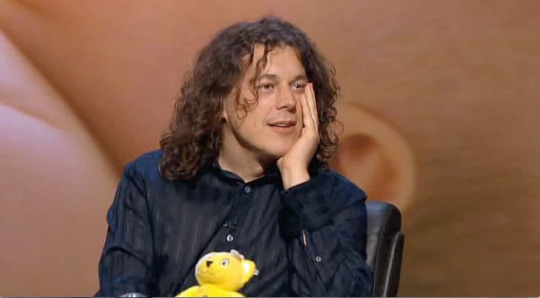
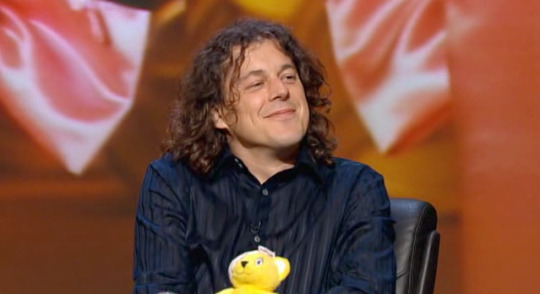


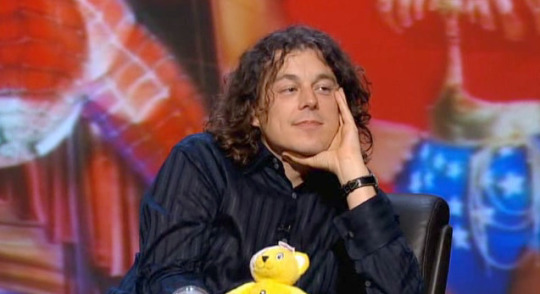
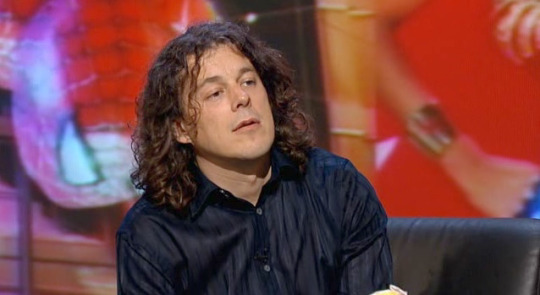
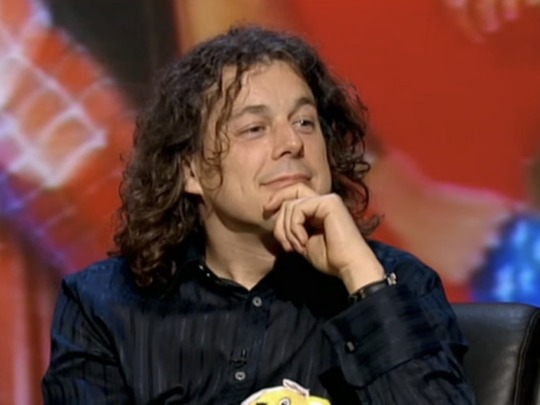
AlanPosting again....
56 notes
·
View notes













